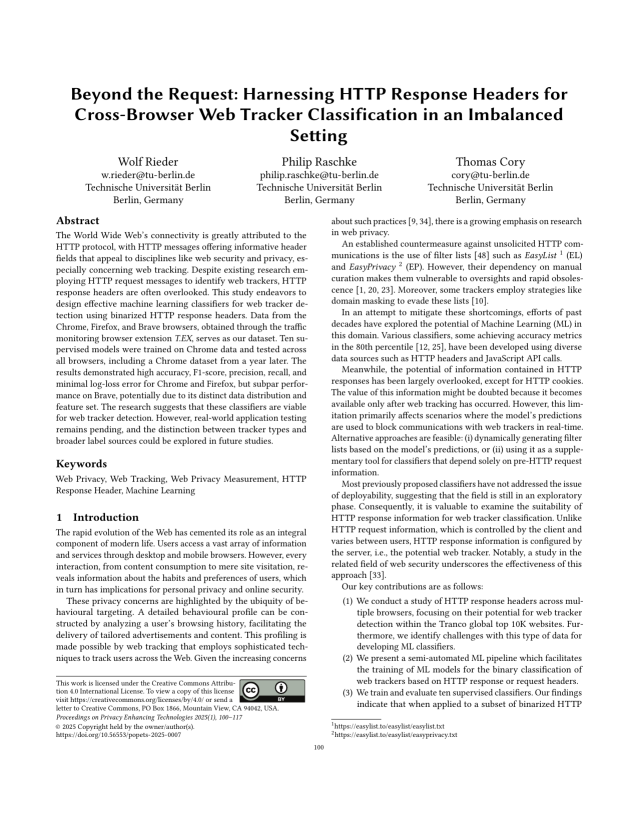Beyond the Request: Harnessing HTTP Response Headers for Cross-Browser Web Tracker Detection in an Imbalanced Setting
Authors: Wolf Rieder (Technische Universität Berlin), Philip Raschke (Technische Universität Berlin), Thomas Cory (Technische Universität Berlin)
Volume: 2025
Issue: 1
Pages: 100–117
DOI: https://doi.org/10.56553/popets-2025-0007
Abstract: The World Wide Web's connectivity is greatly attributed to the HTTP protocol, with HTTP messages offering informative header fields that appeal to disciplines like web security and privacy, especially concerning web tracking. Despite existing research employing HTTP request messages to identify web trackers, HTTP response headers are often overlooked. This study endeavors to design effective machine learning classifiers for web tracker detection using binarized HTTP response headers. Data from the Chrome, Firefox, and Brave browsers, obtained through the traffic monitoring browser extension T.EX, serves as our dataset. Ten supervised models were trained on Chrome data and tested across all browsers, including a Chrome dataset from a year later. The results demonstrated high accuracy, F1-score, precision, recall, and minimal log-loss error for Chrome and Firefox, but subpar performance on Brave, potentially due to its distinct data distribution and feature set. The research suggests that these classifiers are viable for web tracker detection. However, real-world application testing remains pending, and the distinction between tracker types and broader label sources could be explored in future studies.
Keywords: Web Privacy, Web Tracking, Web Privacy Measurement, HTTP Response Header, Machine Learning
Copyright in PoPETs articles are held by their authors. This article is published under a Creative Commons Attribution 4.0 license.

